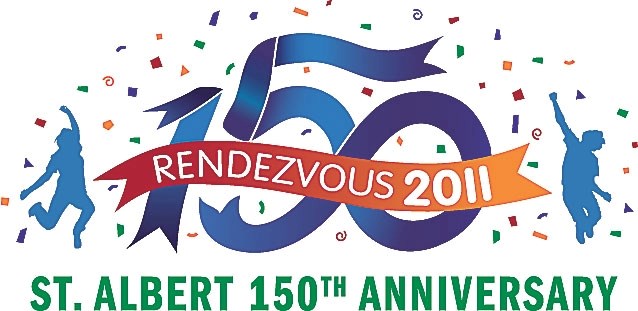Setting a Guinness World Record is no picnic, St. Albert's Rendezvous 2011 organizers have discovered.
The committee has dropped a planned challenge of a Guinness record for the largest-ever picnic because the event would have been too hard and costly to pull off, said committee chair Margaret Plain.
"The concept of beating the Guinness World Record is good but to get there it was very, very difficult," Plain said.
The committee had been working on a plan to attract 25,000 people to various spots along the Sturgeon River on Aug. 28 in an attempt to unseat the Guinness record of 22,232 people set in Lisbon, Portugal on June 20, 2009.
The picnic will still proceed as one of many events in a year-long celebration of St. Albert's 150th anniversary.
"We know that it will be the largest picnic that St. Albert has ever had," Plain said. "It's just not a Guinness record-breaking picnic."
Plain first announced last July that the group was planning to go for the record and had paid about $8,000 for a licence to use the Guinness name. The committee has now written a letter requesting its money back, she said, but hasn't received a response yet.
Changing information
Rendezvous 2011 project co-ordinator Linda Locicero said a group member checked the Guinness website about a year ago, prior to applying. At the time, the record for largest picnic was listed at 8,000 people. However, after they'd paid the fee, return emails from Guinness stated that a new record of more than 22,000 had been set in 2009, she said.
"We probably wouldn't have paid the fee and went through the application process if we had known it was 22,000," Locicero said.
Prior to purchasing the licence, the locals had received a full information package from Guinness outlining its record-setting criteria, Plain said. The criteria focused on what they had to achieve but didn't detail how.
The rules changed after they bought the licence, with Guinness reps saying organizers would have to cordon off specific areas that would hold 100 people each, with an observer assigned to each section to ensure an accurate count, Plain said.
A second layer of observers would be required to oversee the first observers and all these observers would have to be people who were not connected with the 150th celebrations.
"That was going to end up being about a thousand people just to observe people eating the picnic lunch," Plain said. "It became so onerous that we decided that we wouldn't carry through with it."
They also learned that the organizers of the Lisbon record attempt had hired observers, an expense St. Albert's team wasn't prepared to take on. Also adding cost would have been an accurate counting method like a wristband system or some sort of electronic scanning, Plain said.
"The logistics of it were expensive and were just so time consuming that we thought we would focus on the picnic and the activities of the picnic as opposed to that kind of counting," Plain said.
Guinness responds
Guinness did change its rules for multi-site events after the St. Albert group paid for its licence, said Kimberly Partrick, a records manager at the organization's North American office in New York.
However, Guinness intended to allow event organizers to use the old guidelines and only provided the updated list in the hope of helping the attempt, Partrick wrote in an email.
"Especially for such large attempts, these regulations have proved more helpful than difficult in most cases," Partrick wrote.
Guinness World Records deals with thousands of successful attempts each year and it's impossible for every record on the website to be guaranteed current, Partrick wrote. In fact, only records that are adjudicated by a Guinness World Records representative are currently updated on the site.
"We are working on adding more records from our database to the website but with our IT resources spread over many projects this process does unfortunately take time," Partrick wrote.
The refund issue appears to be a question mark. Partrick said her organization would refund the licence fee if the St. Albert group hasn't used the Guinness World Record logo, but St. Albert organizers have listed the trademarked words on the picnic website.
Guinness World Records would like to work with organizers "to help them organize the attempt in a way that works for both parties if they believe this to be possible within the original guidelines," Partrick wrote.
Plain felt that a regular picnic will be less restrictive and more fun for families. She didn't lay blame on the Guinness organization.
"They have a reputation to protect," she said.
Mayor Nolan Crouse said picnic organizers were right to investigate the world record idea but made the right decision in the end.
"Most people outside of the inner circle were skeptical," he said. "The inner circle had an opportunity to look at it. They did that. They did their due diligence and they've made a good decision. I trust them and I back them for that."




